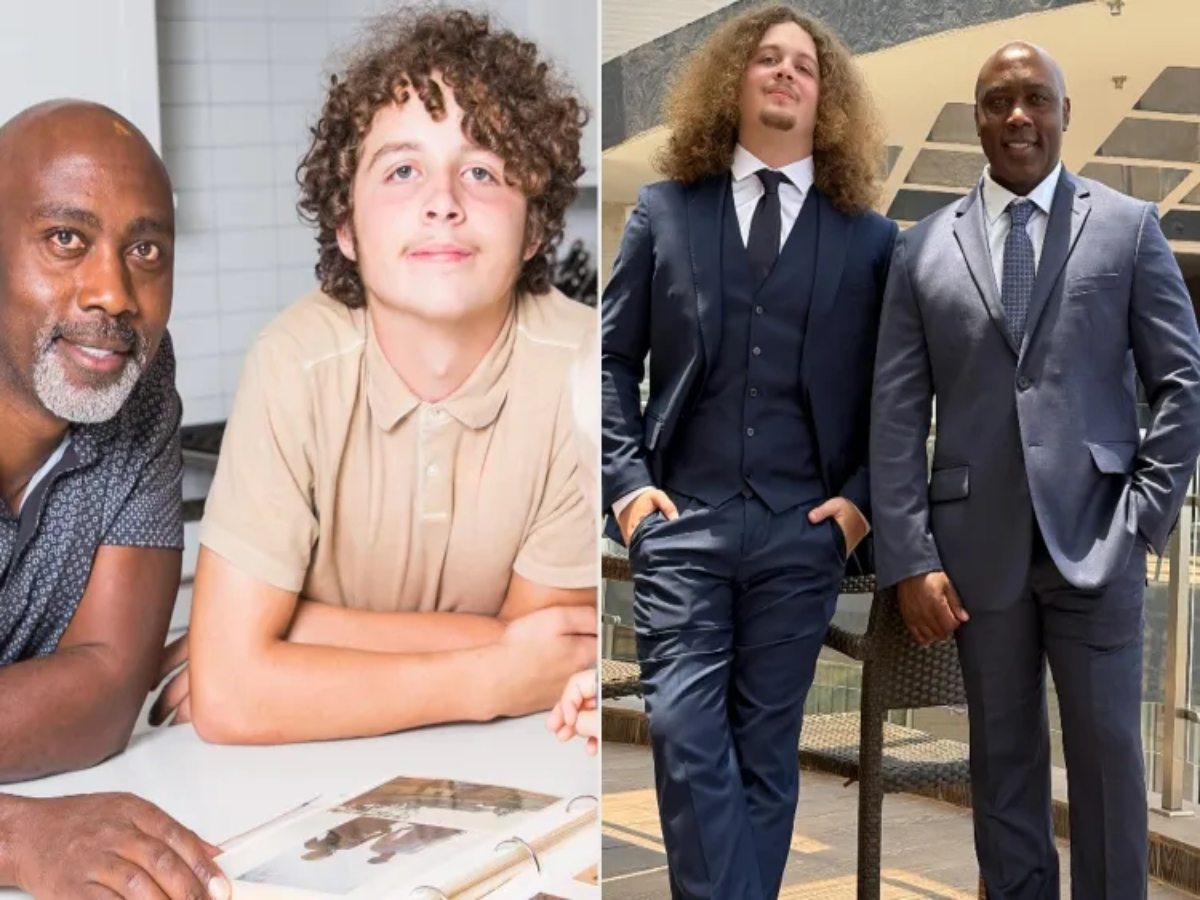Peter Mutabazi’s desire to help and provide short-term shelter to underprivileged youngsters led him to enter foster care. But his choice is also influenced by his own early life, which was marked by difficulty and poverty.
“I’m from Uganda, so I grew up poor — the poorest of the poorest. No one told me to dream. No one told me to be hopeful,” Mutabazi told People.
Things drastically changed as he grew older, and he made the decision to leave his house. He traveled for miles till he got to a bus stop and boarded a bus bound for Kampala. Mutabazi found the unfamiliarity in Kampala overpowering and soon came to the conclusion that his only choice was to live on the streets.
“As a street kid on the streets of Kampala — in any third world country — you are treated more like a stray animal,” the foster dad explained. “The way people viewed you, the way people treated you, everyone who was kind was abusive.”
READ ALSO: Texas teenage cook in foster care reveals his dream of ‘having a family’
But he had a change of heart after a random encounter with a stranger he had attempted to rob. When the stranger asked for his name, the stranger’s generosity triggered a transformation in Mutabazi’s life, resulting in a series of circumstances that would propel him out of survival mode and into a future he had never envisioned.
“He offered me [the opportunity] to go to school after a year and a half, [so] I went and excelled in school,” he recalled. “I really began to [wonder], if a stranger can see the best in me, what can I do? So then I got a scholarship to come to [the] United States.”
Nevertheless, the 51-year-old’s early experiences of abandonment undeniably shaped him, and he was unable to get rid of his sense of duty to help those in need, particularly kids who, like him, were caught in a vicious cycle of abuse and suffering.
At first, he thought that to adopt, one had to be married and white because he had never witnessed a person of color adopt children in his community. So, he started looking into mentoring kids until a social worker asked him whether foster care was something he had ever thought about.
“For the kindness of a stranger who changed my life, I wanted to do the same for kids,” he explained. “I think understanding kids in foster care, unloved, unwanted, being in homes [and] in places they didn’t know, I thought I could give [them] a little glimpse of hope.”
Even though Mutabazi was determined, the initial fostering procedure was too much for him as he felt overwhelmed by the never-ending cycle of children coming and going. When a child left, the emotional toll was beyond description, and the sadness lasted for a long time.
“When kids go, you are left in tears,” he said. “I was like, ‘Man, this job is really hard. I don’t want to do this again.’ I [eventually] told the social worker that I needed a break for [at least] six months. I needed to heal.”
He had no idea that a phone call would completely alter his life a few days later.
“The kids [I was fostering] had left [on a Monday] and I received a phone call on Friday,” he recounted. “The social worker said, ‘Hey, there’s a kid that needs a home,’ and I said, ‘Absolutely not.’ But the social worker [proposed] dropping off the child and picking them up on Monday, so I said yes.”
He almost missed his huge opportunity since he didn’t want to learn anything about the child or build any sort of bond after seeing the departure of 11 children.
He was astonished when the child, Anthony, asked him if he could call him “Dad” rather than “Mr. Peter” when he was trying to help the child settle in at home. And even though Mutabazi tried to avoid contact, things started to change immediately.
“This kid had been in my home for only 20 minutes,” he continued. ”So he looks at me again, and says, ‘I’m 11. I was told that since I’m 11, I can choose who my father should be. So I’m choosing you.'”
On Monday when the social worker came to pick up the boy, Mutabazi signed the paperwork, but still asked the social worker why the boy had been left at the hospital and where he would be going next.
“The social worker told me he was adopted [but] the family that adopted him dropped him [off] at the hospital, never said goodbye and never gave a reason why they didn’t want him,” he explained. “That’s when I realized, I’ve always wanted to be a dad, and this kid somehow knew I [would] be his dad. How did I not see it? That’s when it all clicked.”
Mutabazi quickly took back the documents he had signed and asked the social worker for new paperwork so that the boy could attend school. While it was distressing to find that the boy’s relatives had given up their parental rights, it also opened the door to adoption.
The two have now experienced numerous significant events together, such as graduation, making their first trip to Uganda, Mutabazi’s home country, and attending the wedding of Mutabazi’s younger brother.
Now the proud foster dad describes their relationship as “one of those things that were always meant to be.” “Of course, there is no journey without ups and downs, you’re going to have challenges [because] that’s life.”
“At first we had to [spend] almost a year and a half without [fostering] other kids, so we can get used [to each other], but once we got there, I think he knew my heart, and [that] I always want to help other kids who are in the same position,” he continued.
Mutabazi has fostered more than thirty children since adopting Anthony, and he has also adopted two siblings, Luke and Isabella. Although the two siblings were just supposed to spend the summer with Mutabazi, they have now been a family for four years after being adopted.
With over a million followers on Instagram and TikTok, Mutabazi’s work has now reached a large audience thanks to the internet. His GoFundMe page not only shares his experiences as a foster father but also actively seeks funds to support foster children who are in need of a home.
“I didn’t sleep on a mattress until I was 16, and as a street kid, I never truly belonged anywhere, and that left me feeling unwanted, unloved, and less than human,” he remarked. “But everything began to change when I finally had a stable place to rest. That simple gift, a safe space to sleep, gave me the sense of belonging I had never known.”
“That’s why I now do room makeovers for foster youth, many of whom have moved through 12 or more homes before they turn 18,” he added. “For the first time, we’re giving them dignity. We’re reminding them they are seen, valued and worthy of calling a place home.”










